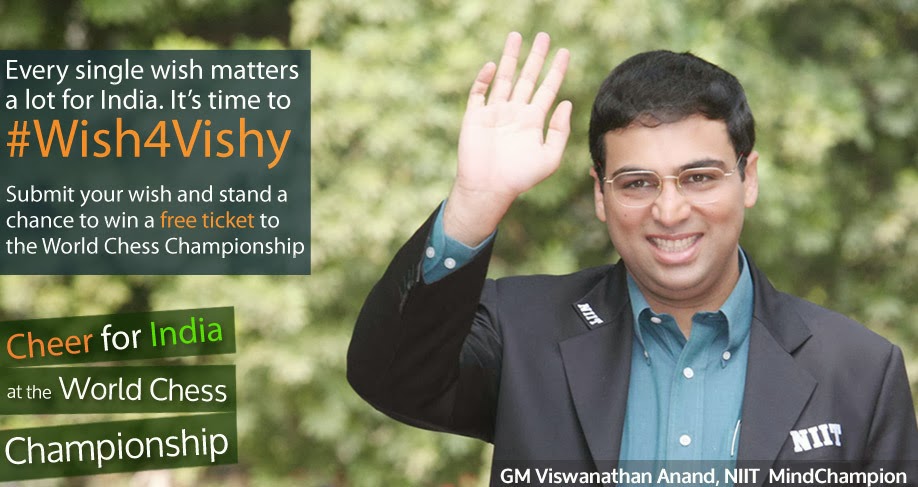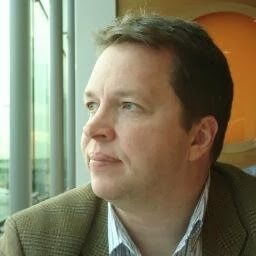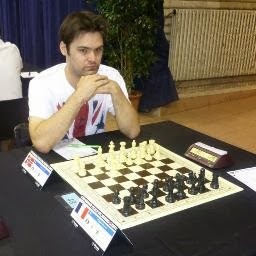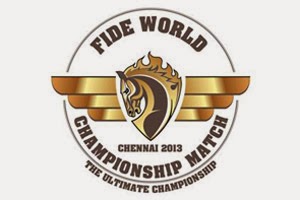World Championship 1972 Fischer – Spassky Game 8
I had already explained that in this position Spassky had to look out for a standard combination. Then came 19…Nd7? (19…Qe5 was probably best and would have left White with just a small advantage.)
‘But I thought he couldn’t play that.’ I went through the continuation starting 20 Nd5 again. I asked the attentive audience, ‘Can anybody see a flaw in my analysis?’ 20 Nd5 Qxd2 21 Nxe7+ Kf8 22 Rxd2 Kxe7 23 Rxc4. The hall was silent. ‘Well. Spassky has blundered!’ I exclaimed. It takes chutzpah (a Jewish expression meaning nerve) for a 2200 player to say that about the World Champion.
Boris could have resigned after his 19th move blunder, but he played on for some time and I had to keep the audience entertained. Someone suggested that we look again at the position before the blunder; after all I had two demonstration boards. But I had to tell the audience that was impossible. I only had one complete set as people had stolen pieces as souvenirs.
The following round the organisers got Bent Larsen, then World Number 3, to do the commentary. My career in this field was temporarily at an end.
In 1975, I organised The Evening Standard London Chess Fortnight. I introduced commentary there, for the first time in Britain I believe. There was a whole roster of people who undertook this task. But, at the start of each round, there would often be an audience of just one. I would start things off and hand over when more people arrived. Again that takes chutzpah.
During the tournament I had a bet with my friend, David Levy, for $200 whether there would be an English Grandmaster within the next three years. We bet in dollars because there was so much inflation in Britain at that time. The following February I was on holiday in Tenerife with my friend Richard Beville. We were debating whether to buy an English newspaper. Then I saw a headline and exclaimed, ‘I’ve won $200!’ After getting a norm in the Evening Standard event in August, Tony Miles had achieved his second and last GM norm in the USSR in February. The then Secretary of the British Chess Federation has asked Tony to send him a telegram if he got his title – the first for a Briton. Tony did so and it read, ‘A telegram’.
I organised my first British Championships in 1981 and continued to do so until 1997. I was also involved in its organisation in 2004, 2008, 2009, and 2013. Vaidyanathan Ravikumar, at that time Asian Junior Champion had asked to play in the Championship in 1980, but was turned down as his rating wasn’t high enough. He contacted me in 1981 and I phoned the President of the BCF asking whether we should let him in. We decided to do so and Ravi was a pioneer as the first Indian player in modern times to play in the British (Of course Sultan Khan had previously won it three times.)
Later Indians used to come for the whole summer, to the British, the Lloyds Bank Masters (which I also organised) and the Benedictine International. I first met Viswanathan Anand when he was 13. I am very proud of the fact that I did a little to help Indian chess develop to the great powerhouse that it is today. In 1987 I even arranged a short match in London that Vishy won 2.5-1.5 against Jonthan Levitt.
Unfortunately the British became overwhelmed by the number of Indians. In 2003 there were over 100 and since then the event is open only to players from the British Isles. But we still see Ravi at the British and this year he did coaching and commentary.
In 1982, I introduced earphone commentary at the Phillips & Drew/GLC Kings. This enables people to watch the games and hear analysis. One has to be very careful not to tell too many jokes. Of course I pioneered this development myself.
In 1983, we organised the Acorn Computer World Chess Championship Semi-Finals in London. This featured the matches Kasparov – Korchnoi and Smyslov – Ribli. We arranged the whole event at very short notice, but nonetheless with considerable panache. The Opening Ceremony was held at 11 Downing Street; that is where the Chancellor of the Exchequer (Finance Minister) lives. But Florencio Campomanes, then FIDE President and I noticed they had got the drawing of lots ceremony wrong. Of course we said nothing, except to each other.
I had asked the director of Acorn why they were sponsoring the match. He answered, ‘What do you want to know that for?’ It turned out later that their shares were being floated on the stock exchange at that time. Of course they wanted positive publicity during that period. I realised the company wasn’t going to last. Virtually all the money for the event went through my bank account as they only had two signatories for their accounts and simply signed a cheque to me for each tranche of money. How it was all ever audited, I have no idea. Indeed, it wasn’t long afterwards that they had to be rescued with a take-over. I did like a term the Managing Director coined at the Closing Ceremony. This was ‘a concentration of chess players’. Years later, I devised another one, ‘an argument of arbiters’.
The event took place just before Christmas. In those days matches were open-ended. If one had been drawn, there would have been a playoff lasting several days. GM Dr John Nunn calculated it was about 3/1 against that happening. This would have taken us through Christmas – and the hotel where the event was staged was closing down for the period. ‘What’s going to happen?’ I asked. The manager said, ‘Then we’ll keep the hotel open’. I strongly believe good organisation is in the pre-preparation. See the problems in advance and prepare to avoid them.
With matches it is not unusual for some games to be very short. It was also possible to take a time out. So we devised events such as Exhibition Games, Any Questions sessions and chess film shows to keep the paying spectators reasonably happy.
In 1984 we organised the London Docklands USSR v Rest of the World Match at just five days’ notice. The event took place in June, the busiest time of year for London hotels. Ray Keene asked me to find a hotel to put about 40 people. After about 50 phone calls I found one that had space because it had only just reopened. But they need confirmation and a deposit before 5 pm. I had to contact Ray, but had no idea where he was. Remember, that was before the days of mobile phones. Two phone calls later, I had him on the line and everything was arranged. But some of the accommodation was so cramped it seemed the bed was bigger than the room.I phoned the public relations company and heard the person to whom I was speaking call across the room. ‘I’ve got somebody on the line who knows something about this event’. At the Opening Ceremony the then President of the British Chess Federation said, ‘I don’t know why anybody would want to come here.’ Of course that was the whole point of the exercise. The London Dockland Area was in the whole process of being redeveloped. I apologised to the director of the development corporation. ‘We could take him out and shoot him’. ‘No, no need, he said, ‘Just attach a cement bucket to his legs and throw him off the dock.’ 10 TV stations attended the event from all over the world. The LDCC said this was the first time they had ever received positive publicity and they supported several other chess events in the next couple of years.
I said that next time they would ask us to organise the Olympiad at one days’ notice. One of my members of staff, Jill Triggs, said, ‘Oh no, Stewart; we’ll need at least three days to get it right’.
In 1986, we organised the first half, 12 games, of the Greater London Council World Championship match between Kasparov and Karpov. The second half was held in Leningrad (now St Petersburg). This time there was ample time for advance planning. But I had a major problem. I was also in charge of The British Championships which were due to start the same day in Southampton. I telephoned my predecessor Gerry Walsh and explained the situation. He immediately said the nicest thing anybody has ever said to me. ‘Just ask, I’ll do whatever you need.’ So he acted as onsite manager of the British and I visited the event whenever possible. This resulted in my having three bedrooms for the first two weeks, one at home, one in Southampton and one in the Park Lane Hotel where the World Championship was taking place. I just looked it up and only eight Indians played in the British and Ladies Championships in 1986. The juniors had yet to discover the lure of playing in the age group events.
As usual the event was covered by the national BBC TV station. A few weeks before the event, I was telephoned by a researcher for commercial TV. They were interested in also doing programmes. Ray and I met him at the hotel. ‘We would like to do 45 minute programmes the following day and be the first to announce the results.’ I responded immediately, ‘Give us a million pounds and we’ll think how that can be achieved.’ Ray chipped in, ’45 minutes it too long; chess gets boring. You should have 25 minute programmes as soon after play finishes as possible. That way the first announcement about the results will be made on your own news programme.’
He thanked us and went off. Ray exclaimed, ‘Well, that’s blown chess on commercial TV for another 10 years!’ But a few weeks later Ray telephoned me and said the director had rang back and wanted 25 minute programmes shown the same evening. I would have said, ‘Like we suggested.’ But Ray, much more of a salesman than me, just said what a wonderful idea. It was a real breakthrough that chess started being shown on commercial TV. Apart from 26 programmes they did on the World Championship; they also did about 100 more on other events.
London mounted a real chess festival in 1986. ‘Chess, The Musical’ had its premier then. ‘I’m the arbiter, I know the score, from square one, I’ll be watching all 64. I’m the arbiter, I know best. Don’t push me, I’m unimpressed.’ When I met Sir Tim Rice shortly after the album was released I asked him, ‘You’ve written this song about an arbiter who is abrasive, dogmatic and self- opinionated. Is that me?’ He responded immediately, ‘Of course it’s you Stewart. You’re the only arbiter I’ve ever met.’ Truth to tell, it was more about Florencio Campomanes, then FIDE President.
A film called ‘Dangerous Moves’ opened in London and went on to win the Oscar for the Best Foreign Language Film. The subject matter was a fictitious World Chess Championship match. There was an exhibition of chess sets at the British Museum. We set up a stall at Waterloo Station where commuters could play chess.
We were given permission to have chess activity in Green Park, just across the road from the hotel. The evening before it all started a Black and White disco was held at a major nightclub; I was able to introduce the person who played the arbiter in the show to no fewer than 7 international arbiters. The event and drawing of lots ceremony was conducted by the then Prime Minister, Margaret Thatcher; the caviar reception had several sponsors, but primarily Duncan Lawrie, and was organised by the person who was then in charge of the Edinburgh Tattoo. We also ran the Commonwealth Championship and the Lloyds Bank Masters while the main event was on, but in a different hotel. David Eustace, who has made a welcome return to chess administration, was my deputy at the Lloyds Bank Masters when I was busy with the World Championship.
There are always problems with a large event. Anatoly Karpov came to inspect the setup, quite separately from Gary Kasparov. He was extremely scathing about the arrangements made for the retirement rooms during play. There were a large number of people at that meeting. I asked them all to be quiet, while I thought. I asked the hotel manager whether we could build such rooms to the left of the playing hall. He agreed and another problem was solved.
Of course, I arranged for a roster of illustrious grandmasters to do the commentary. But the hall wasn’t large enough to cope with the numbers. So we hired another hall and hired more commentators. The numbers for these events tends to build up during it due to the publicity. Two commentary rooms still wasn’t enough and there were no more rooms available. So I took an audience of about 200 people into the park and conducted impromptu commentary there. Why me? Well, I had one great advantage, my voice is very penetrating and there was no microphone. But why, oh why did I get landed with game 9, the most boring of the match?
There was a separate box in the gallery for the earphone commentators. When I found time, I sometimes wandered in and chatted. One game had the strong players perplexed. They asked my view and I made a suggestion. It was the move actually played.
We registered approximately 700 members of the press in the five weeks of the event. Nowadays people don’t bother. They can view the event on the internet. At Karpov’s opening press conference he insisted on speaking through an interpreter. The media needed a soundbite and were becoming very agitated. At its end I asked the chairman whether I could ask a question. It was the most anodyne I could think of. ‘What can Mr Karpov say about playing again in London?’ Of course he responded flatteringly and in English. Several members of the press came and thanked me.
Karpov asked me how the Save & Prosper Best Game Prize of £10,000 was going to be presented. I told him in gold. ‘Don’t be ridiculous!’ ‘What do you mean? It’s going to be given in gold.’
At the closing ceremony, Lord Callaghan, the immediate previous prime minister, made the presentation in gold sovereigns. It was just as well there was an even number of coins; they shared the prize for their draw in Game 11. Gary wanted to dance at the closing party with the female representative of Save & Prosper. He tossed the small bag of coins to his mother and off he went. Later I went to Leningrad as a guest of the Soviet government for the second half of the match. Jill Triggs said a book could have been written about organising 1986.
Later in 1986 Annette and Ray Keene were at a cocktail party. Annette was chatting to Kevin Packenham. ‘We may be interested in sponsoring chess’. ‘Come and meet my husband’, Annette exclaimed. Thus Foreign and Colonial started a six year sponsorship of Hastings, the longest running international tournament in the world. Whether that was sparked off by the earlier events in London that year, I don’t know. Ray and I became members of the committee and I have been involved in the organisation ever since. Lord Callaghan came to the closing dinners a couple of times. He knew his job and told the sponsor, no longer Kevin, what good value it was.
Nigel Short qualified to play for the World Championship title against Kasparov in 1993, winning matches against Karpov and Timman along the way. I arranged a small party to celebrate his triumph. Although he was in London, he refused an invitation. This boded ill, but I didn’t know in what way. Later that week I visited Manchester to inspect a possible venue. Then everything fell apart. Gary and Nigel refused to play the match under FIDE’s auspices.
Eventually it was sponsored by The Times newspaper and held in London. In my opinion, had they turned to me and everybody asked me to unravel the mess, the event would have been held in Manchester, sponsored both by Manchester Airport and The Times. The players would have made more money, it would have cost The Times much less money and Northern chess still smarts about the event being taken away from them. Also the mess caused by the schism with FIDE wasn’t cleared up that century, indeed not until Vishy became the undisputed World Champion.
The Times had some very ambitious ideas about the match and I was in charge of the special events. Most of this came to nothing as the receipts from ticket sales was disappointing, so that the event lost money and most non-essential events were cancelled. I was asked by poker players what the betting was on the match. I said there were no odds, Kasparov was going to win. Unfortunately Nigel lost the first game on time in the superior position, possibly confused by the flag fall on the Garde clock. Remember this was before digital clocks became popular. He then went ½ to 3½ behind and the event thereafter lacked sporting credibility. He did recover and carried the match to Gary who won 12½-7½. Indeed, unlike most World Championship matches, all the games are worth playing through.
But two TV stations again carried the match and it was held in the magnificent, refurbished Savoy Theatre. Why Ray allowed the first broadcast on commercial TV to be right at the start of each game and then to last an hour, I don’t know. It was boring, just as he had predicted in 1986. Of course they should have started the programme at least one hour after the game commenced.
Interestingly enough, I was Chief Arbiter at the Commonwealth Championship in Mumbai. A TV station wanted to broadcast the whole round live. Fortunately they were dissuaded from this foolhardy idea. I have always presumed the viewing figures in 1993 were disappointing, because that was basically the end of chess events being televised in Britain. But I did get to do some earphone commentary, keeping intact my record from 1972. There was no room suitable for good live discussion of the games with an audience. I had asked about what would happen if the match finished prematurely. I was assured they would play four exhibition games. I knew that wasn’t going to happen. Instead they played a number of rapidplay games; a consultation game and a player won a competition to play a blitz game against Nigel.
Some of the TV programmes broadcast from 1981 to 1993 can be purchased from amazon or Impala.
Then, 2000 saw the Brain Games World Championship between Kasparov and Vladimir Kramnik. It was held at the Riverside Studios in Hammersmith in London. Again that wasn’t a FIDE event and there were no TV programmes. I did the first texting commentary on the games. People could phone a telephone number and get the moves of the game and some, if they wanted commentary, that was a different number. It is possible this is the only time this has been done. Nobody ever said to me that they accessed my messages so it was a bit like writing a message, putting it into a bottle and casting it into the sea. Unfortunately Gary played very insipidly and it wasn’t an exciting match.
In 2002, I received a phone call from Franco Ostuni, general manager of the Caleta Hotel in Gibraltar. They were interested in organising a chess tournament at their hotel. I asked why. It is always very important to get that clear; otherwise you won’t provide a sponsor with a good service. He told me they wanted to make more use of their facilities in the off-season. I told him the most suitable event would be a master Swiss. He had never seen a chess tournament in operation so he came to Hastings to get an idea of what goes on. I went to the hotel to inspect it and, the first, rather small, event started in January 2003. Now it is recognised as the strongest open tournament in the world. But that is down to Brian Callaghan, proprietor of the Caleta, not me. It is he who has raised the money.
Spot Stewart Reuben!
Last year I was deputy arbiter for the FIDE Grand Prix in September in London. There were no problems, but being an arbiter is not my forte – although I have been an international arbiter since 1976. Three Grandmasters asked me how I was going to stay awake during the games and, yes, this is a problem! I am an organiser, commentator, writer, player as well as being an arbiter.
(c) Stewart Reuben, November 2013
(Chess Magazine Black & White thanks the writer for this special article written on the occasion of the World Chess Championship between Viswanathan Anand and Magnus Carlsen) Please send comments to stewartreuben@aol.co.uk










































